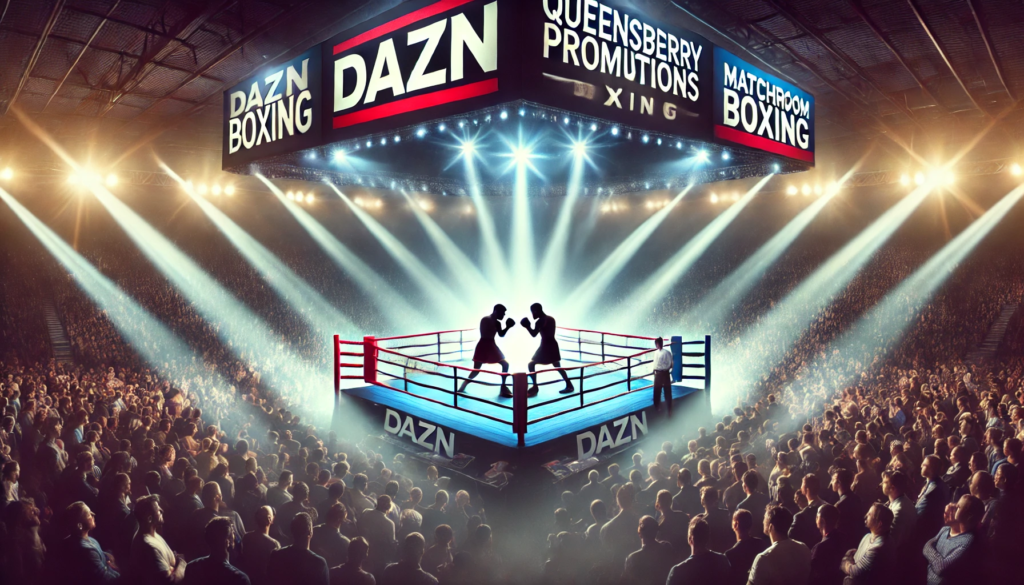British boxing is set for a seismic shift with the recent DAZN-Queensberry Promotions deal, a partnership that has already sparked debates across the boxing community. But what does this mean for the future of the sport in the UK? Will this collaboration elevate British boxing or disrupt its long-established structure? Let’s break it down.
The DAZN-Queensberry Partnership: A Game-Changer for British Boxing?
The deal between DAZN and Queensberry Promotions marks a significant moment for boxing in the UK. DAZN, a global streaming powerhouse, has been making aggressive moves to expand its influence, while Frank Warren’s Queensberry Promotions is one of the most respected entities in British boxing. This partnership is poised to challenge existing broadcasting deals, particularly those with Sky Sports and BT Sport, which have traditionally dominated UK boxing coverage (source: BoxingScene).
With DAZN’s backing, Queensberry Promotions now has an even greater platform to showcase British talent. Fighters under Warren’s stable, such as Tyson Fury, Joe Joyce, and Daniel Dubois, could now have access to wider audiences, potentially bringing bigger fights to UK shores.
The Battle for Boxing Supremacy in the UK
For years, British boxing fans have tuned in to Sky Sports and BT Sport to watch the biggest domestic and international fights. However, DAZN has steadily disrupted this landscape, securing major names like Anthony Joshua and Canelo Alvarez. The addition of Queensberry Promotions to its roster is a clear statement of intent.
This deal is not just about streaming fights; it’s about reshaping the way boxing content is delivered. DAZN’s subscription-based model contrasts sharply with the pay-per-view (PPV) approach still favored by Sky and BT Sport. This shift could make high-profile fights more accessible, reducing the need for expensive one-off PPV events (source: DAZN News).
What This Means for Fighters and Fans
For Fighters:
- More exposure on a global platform.
- Potential for bigger fight purses with DAZN’s financial backing.
- New promotional opportunities beyond the traditional PPV structure.
For Fans:
- Access to more fights at a lower cost compared to traditional PPV models.
- More competitive fight cards due to increased investment in UK boxing.
- Potential for mega-fights between DAZN-backed and non-DAZN fighters.
However, not everyone is convinced. Some critics argue that DAZN’s business model may not be sustainable in the long run, and questions remain about whether this partnership will deliver the best fights or create further divides within boxing’s already fragmented promotional landscape.
The Future of British Boxing Under DAZN and Queensberry Promotions
If DAZN and Queensberry Promotions play their cards right, British boxing could enter a golden era. The key will be ensuring that the best fights actually happen. Cross-promotional politics have long been a roadblock in boxing, and this deal could either alleviate or worsen that issue.
Will we see Queensberry fighters taking on Matchroom Boxing’s top names under Eddie Hearn? Will this deal encourage Sky Sports and BT Sport to up their game in response? Boxing fans will be watching closely.
Share Your Thoughts!
What do you think about the DAZN-Queensberry Promotions deal? Is this good or bad for British boxing? Let’s get the conversation going—drop your thoughts in the comments below! Do you agree with my take, or do you see things differently?
For more boxing news, fight previews, and analysis, check out CMBoxing and stay updated with all the latest in the fight game!

